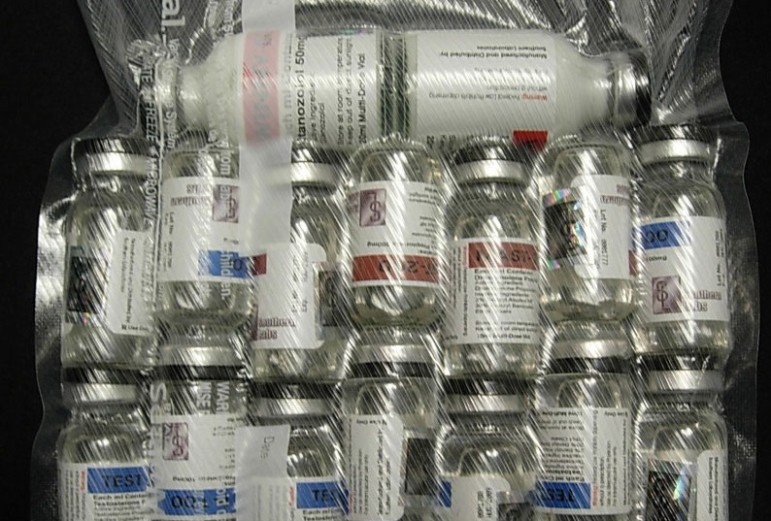
October 15, 2015; Boxing Insider
The distinctive and exciting aspect of covering the nonprofit sector is that the presence and importance of nonprofit organizations is found in unusual places. For example, due to an in-depth review by investigative journalist Thomas Hauser of the role of the United States Anti-Doping Agency (USADA) in the Floyd Mayweather/Manny Pacquiao boxing match, the NPQ Newswire recounted aspects of the controversy, focusing on the relationship of the USADA to the Mayweather camp. The USADA then responded to Hauser with a detailed series of statements, and the NPQ Newswire covered that. Hauser then produced another counter in BoxNation, on the heels of which NPQ received an email from a representative of the USADA offering to make someone available to us if we had further questions about the issues that Hauser raised.
As casual observers of professional boxing, no one at NPQ would suggest we have expertise in the medical issues at the heart of the Mayweather incident involving a pre-fight intravenous injection, much less the expertise and competence of the USADA regarding drug testing in general. However, as in other professional sports involving elements of sharp, violent contact (think: professional football and hockey), the health consequences of professional sports can be serious, putting a lot of pressure on sports regulatory authorities. For example, in the Washington, D.C. area in October, an up-and-coming Puerto Rican boxer named Prichard Colón, largely expected to best his opponent, fought on the undercard of a Lamont Peterson/Félix Díaz bout and ended up in a coma from bleeding on the brain. Maybe it was his opponent’s repeated rabbit punches, but it also might have been a preexisting medical condition that was undetected, overlooked, or simply ignored before the fight. Colón was no Mayweather or Pacquiao to be sure, but any boxer going into the ring, including champions like Mayweather and Pacquiao, needs the most thorough protection possible given the violent nature of the sport. When it comes to questions of doping, where nonprofit entities like the USADA in the U.S. and the World Anti-Doping Association (WADA) play influential if not determinative roles in making some of the decisions around boxing and other sports, the probity of the nonprofits in question is a legitimate issue for journalistic inquiry by journalists such as Hauser.
Writing for Boxing Insider recently, Sean Crose dug through the contradictory Hauser and USADA positions to identify a handful of undisputed facts that emerged from their statements:
- Mayweather received an IV injection for still unknown reasons the day before his superfight with Pacquiao.
- USADA was aware that the IV injection was being given. What’s more, at least one of the agency’s agents witnessed the entire affair.
- It has yet to be proven what substance (or substances) the IV injection delivered to Mayweather’s bloodstream contained.
- It is unknown who gave the okay for Mayweather to receive the IV injection.
- It is unknown which company the paramedic who delivered the injection worked for.
- It is unknown if there is a record of the injection being delivered by a paramedic.
- USADA informed the Nevada State Athletic Commission of the incident 20 days after Mayweather emerged victorious over Pacquiao in Las Vegas.
Acknowledging that the USADA might well be “an innocent party” in this dynamic, Crose nonetheless suggested that these facts don’t look good on the USADA’s handling of the Mayweather/Pacquiao fight. On the other hand, Crose noted that Mayweather’s fights are on Showtime while Hauser has been or is employed by its competitor HBO, and Hauser relies for some of his analysis on disreputable types like former BALCO owner Victor Conte as sources.
While the facts that Crose culled from the Hauser and USADA versions of the Mayweather/Pacquiao fight are troubling to us as casual fight fans, the concerns about a nonprofit entity functioning as an instrumentality of regulation and oversight raise some additional questions about reliability and probity, given that the six-figure payment to the USADA for its services in the fight came from Mayweather’s camp, notably the controversial Mayweather “advisor” Al Haymon.
Is this all a hullaballoo not worth a whit of attention? Boxing has long been a sport on the downside, marginalized by the public, and perhaps, as a result, not significant enough to warrant concern about whether Mayweather’s intravenous saline injection might have been inappropriate or actually been used to mask the fighter’s potential use of performance enhancing drugs. Maybe, except that the sight of Prichard Colón in a post-fight coma tells us that health and drug issues are not inconsequential for fighters and for sports in general.
This year, Rep. Paul Tonko (D-NY) and Rep. Andy Barr (R-KY) introduced legislation to designate the USADA to be in charge of monitoring doping in horse racing. “Thoroughbred Horseracing Integrity Act of 2015,” H.R. 3084, would establish uniform standards overseen by an “independent horse-racing anti-doping authority” whose members would include the head of the USADA, five USADA board members, and five other individuals appointed by the USADA. Call it an independent authority if you want, but it means that the USADA would be running the show were this legislation to be adopted. Although the bill does not call for federal funding of the multi-state regulatory effort, it does call for assessments to be paid by the various state racing commissions, with the commissions allowed to basically determine how they generate those payments. Given that horse racing, like boxing, hasn’t been historically the cleanest of sports in all cases, the parallel to the mechanism of compensation for the USADA’s role in the Mayweather/Pacquiao fight is relevant.
Sign up for our free newsletters
Subscribe to NPQ's newsletters to have our top stories delivered directly to your inbox.
By signing up, you agree to our privacy policy and terms of use, and to receive messages from NPQ and our partners.
The delegation of a regulatory authority to a private entity such as the USADA, no matter what the USADA’s track record, prompted an inquiry by Senator Thomas Udall (D-NM) and Rep. Joe Pitts (R-PA), who sought a report from the nonpartisan Congressional Research Service on the Tonko/Barr legislation. According to the report, “there would appear to be a consensus that delegations of regulatory and enforcement powers to private entities generally raise constitutional concerns, particularly when federal involvement and supervision in the exercise of those powers are absent.” The report was not supportive of the Tonko/Barr bill in light of that observation and that it would be funded “entirely by the Thoroughbred horseracing industry.” Hardly an enemy of the USADA (having proposed his own bill co-sponsored by Democratic Congresswomen Jan Schakowsky of Illinois and Anna Eshoo of California to have the USADA test thoroughbred, Standardbred, and Quarter Horse racing), Pitt issued a statement concluding that the Tonko/Barr bill “would not end the rampant cheating, nor punish the abusers with meaningful consequences, but ensure that the status quo remains in place.” Senator Udall added his concerns that the “sweetheart federal gambling deal” that the horseracing industry operates under makes an industry-generated bill like the H.R.3084 troubling to say the least.
The role of the USADA in regulating doping in sports generates controversy in a number of areas. For example, Jeff Novitzky, the investigator who played significant roles in the investigations of performance-enhancing drug use by baseball star Barry Bonds, has been hired by the mixed martial arts Ultimate Fighting Championship (UFC) to develop anti-doping protocols meant to be stricter than those of other sports, including boxing, and for his partner, he has recruited and invested full confidence in the USADA. One of the pioneers of drug-testing in sports, Don Catlin, didn’t quite agree, telling USA Today:
I’ve heard strong statements about how great (the UFC’s program) is, but I am suspicious until I actually see it in action. Who’s in charge? If USADA is in charge, I’m even more suspicious, because they’re known to do a lot of weird things…They’ve had a lot of bad affairs lately and making up the rules as they go. That’s not a good idea.
Getting past the specifics of Mayweather’s use of a pre-fight injection (and the Mayweather camp’s aspersions that Pacquiao was using illegal PEDs due to his injured shoulder), the role of the USADA doesn’t come out as all bad or as all good. Many people laud the USADA for its role in addressing doping in non-Olympic sports such as track and field and bicycle racing. The nonprofit has been unsparing, for example, in its criticism of disgraced champion Lance Armstrong. But the role it has played in sports that aren’t quite as clearly controlled or regulated as major professional league sports such as baseball and football—themselves with troubled histories, to say the least—makes inquiries by the press and the public of the nonprofit sports doping regulator legitimate.
In the Denver Post, following the original Hauser article in SB Nation on the USADA’s connection to Mayweather, University of Colorado Boulder professor Roger Pielke wrote that conflicts of interest in sports, including USADA’s, warrant Congressional attention, given that the USADA “is recognized in law as the nation’s official anti-doping agency,” that the USADA “makes almost $2 million a year” through “moonlighting” for contract payments from professional boxing, but has “little accountability to Congress or the public.” In response, track and field icon Frank Shorter, a former chairman of the USADA board (which is now chaired by hurdler Edwin Moses), countered that “the continuation of [annual federal] funding [for the USADA] recognizes and affirms the overwhelming success the USADA has achieved.”
Given the controversies concerning the USADA in boxing and the qualms raised by Udall and Pitts in the proposed USADA role in horseracing, congressional oversight is warranted. It isn’t a matter of uncovering a lurking scandal in the bowels of the USADA, but putting congressional attention to the question of the delegation of oversight and regulation of significant parts of American society to private entities. The importance of the credibility of the USADA, which is a signatory to the standards of the World Anti-Doping Agency (WADA) and a central player for the U.S. Olympic Committee but involved in sports such as boxing whose standards and procedures fall short of WADA, should not be dismissed as unworthy of federal attention. Some scrutiny for an entity designated as the nation’s official anti-doping regulatory agency would be useful as members of Congress pitch it for anti-doping roles in horseracing, Jeff Novitzky stands by its potential role in the UFC, and questions swirl about its relationship with the camp of Floyd Mayweather and his “advisor,” Al Haymon.
Considering the USADA, and nonprofits more broadly, the proclivity of Congress to delegate regulatory and enforcement roles to third parties means regular Congressional review is necessary, especially when the regulator is to be paid by the industry it is regulating. Research suggests that independent regulators tend to be more effective and efficient than those closely tied to the industries in question. For the USADA, its role in boxing or track and field or horseracing is sort of a mix, in that the USADA is technically not a part of any of those sports, but in the case of boxing or the proposed structure of horseracing, it would be paid by them. How well the USADA performs in its quasi-independent regulation of the sports in question—and how intelligently Congress understands and oversees the USADA’s performance—has much to say to the nonprofit sector as nonprofits contemplate options of self-regulation and co-regulation.












